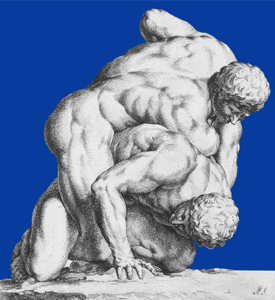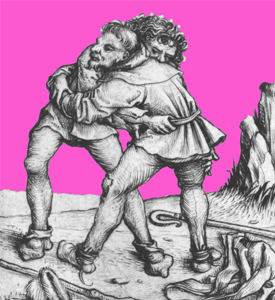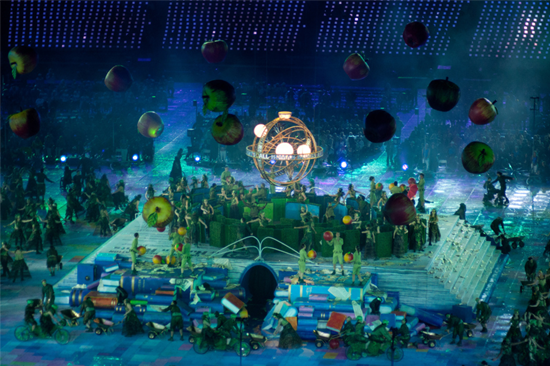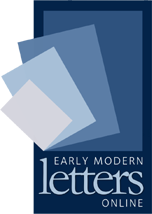With the Paralympic Games about to get underway – and memories of Danny Boyle’s wonderful opening ceremony and a record haul of precious metal for Team GB still fresh – we continue to be gripped by London 2012 fever, so what better way to celebrate than to dive into Early Modern Letters Online and start wrestling with the enduring themes of Olympism and sport.


EMLO’s records reveal how, two centuries ago, the ancient Olympiads were used by antiquarians as a vital means of historical dating. In 1699, Henry Dodwell ‘compared with the Olympiads the various dates assigned to the… consuls’ of Varro, Cato, and Polybius in order to ‘establish the sequence of epochs’, and in 1716 Samuel Mead sent five guineas, via Thomas Rawlinson, to Thomas Hearne in the hope he might procure a copy of the ‘history of the Olympiads, printed at Oxford several years ago’. We read how early modern sport was regulated less by rule for each game and more with regard to its practice or prohibition on the Sabbath and holy days (a subject with which James I’s Book of Sports, published 1617 and reissued by Charles I in 1633, was particularly concerned).
As the world’s finest athletes strive to give of their best, we cannot help but wonder at what those of a sporting disposition from our stable of early modern men and women of letters might excel today. Would our archers mount the podium, for we read of Lord Aylesford preparing ‘a ground on Meridan Heath for archers where butts are to be laid out in the Finsbury fashion’? We have an account from 1695 of Cambridge undergraduates playing ‘football on a green to themselves’, while ‘the masters play bowls’. We know how young men were trained: a young Peter Redmayne writes to Thomas Smith from Paris in 1705 how he is ‘much busied in his exercises, riding, dancing and fencing’. Could early modern horsemen have become naturals at dressage, huntsmen at cross-country, or swordsmen with foils? We hope none of their modern counterparts suffer the misfortune of young Master Thomas Wharton who caught cold through ‘fencing in his drawers‘.
But the trials and tribulations of bloodsports, which for the Reverend William Bush included hunting ‘with his cousin who with his horse fell into a muddy pond, and is now in bed till his clothes are dried “his coat which was a modest drab is changed into a good bold Pompadour, which is all he has gained in point of advantage, excepting indeed, the reputation of the bold sportman”’, are a world apart from the obstacles encountered by Olympians today, and no national team would accommodate our corpulent clergyman, the Reverend Mr Thomas Mason, who ‘used to value himself on account of wrestling before K. Char. II. Indeed he had been a very stout, lusty man, & was eminent for Backsword playing, wrestling, and cocking & other sports’. These modern Olympics are for the young, the talented, and the physically honed, the sporting equivalents no less of our learned Jacques Philippe D’Orville, a ‘teacher not of the youth only but born to be torch bearer leading the elite’.
Miranda is editing metadata from the Bodleian card catalogue of correspondence for our union catalogue, Early Modern Letters Online. On a regular basis, she brings us hand-picked and contextualised records.






 Join
Join 